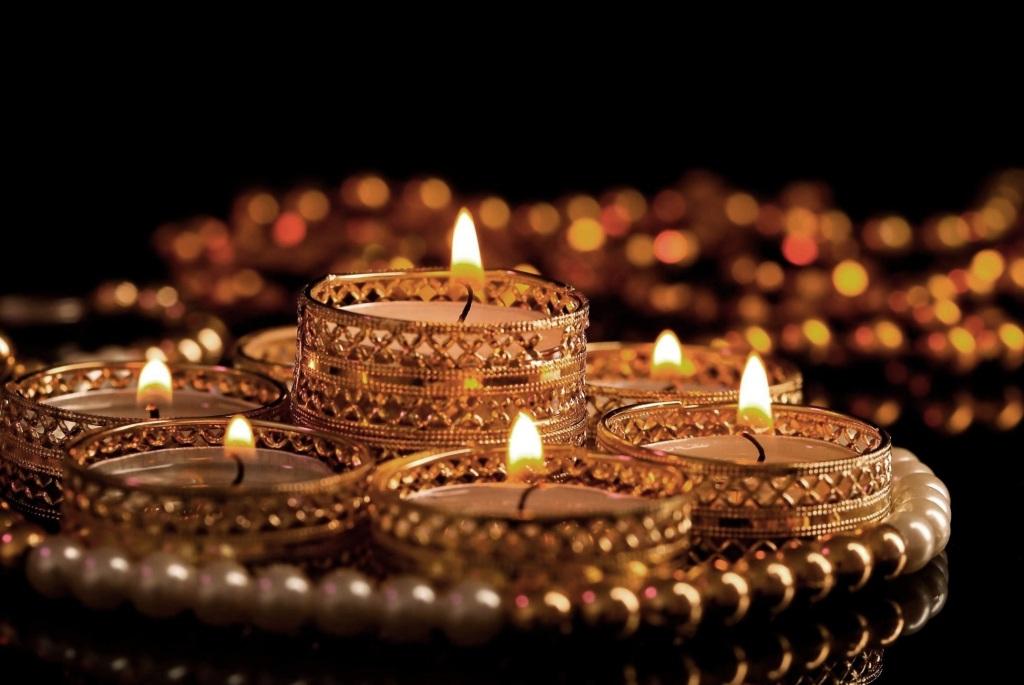 India, a land of vibrant cultures and ancient traditions, is home to a myriad of festivals celebrated for centuries. With Diwali just around the corner, families and communities prepare to come together, lighting lamps, sharing sweets, and celebrating the triumph of light over darkness. However, as environmental challenges grow more pressing, it’s essential to rethink how we celebrate these occasions to protect both our heritage and our planet.
India, a land of vibrant cultures and ancient traditions, is home to a myriad of festivals celebrated for centuries. With Diwali just around the corner, families and communities prepare to come together, lighting lamps, sharing sweets, and celebrating the triumph of light over darkness. However, as environmental challenges grow more pressing, it’s essential to rethink how we celebrate these occasions to protect both our heritage and our planet.
Mr. Khetsi Barot, a distinguished leader in the real estate industry, and Director and Co-founder of The Guardians Real Estate Advisory, offers a compelling vision for a sustainable future for Indian festivals. Known for his commitment to excellence and people-centered leadership, Mr. Barot encourages us to strike a balance between tradition and innovation, advocating for eco-friendly practices in our festivities.
This article delves into the potential of sustainable practices to rejuvenate our cultural heritage. By exploring various strategies, from promoting eco-friendly materials to leveraging technology, it aims to inspire individuals and communities to embrace a greener approach to festivals.
Read the full article to learn more about how you can celebrate Indian festivals sustainably.
Preserving Culture, Protecting the Planet: A New Vision for Indian Festivals
India is a land of diverse festivals, where each celebration is a reflection of our rich cultural heritage, bringing people together in shared joy and community spirit. Whether it’s Diwali, Holi, Ganesh Chaturthi, Christmas, Eid, or Durga Puja, these festivals play an integral role in uniting the country. However, as environmental challenges grow more pressing, the way we celebrate these occasions must evolve towards sustainability. The critical question we face today is: How can we uphold the traditions that define these festivals while ensuring a sustainable future for generations to come?
A survey conducted among 8th-grade students revealed that 63% of them burst firecrackers during Diwali, despite 67% being aware of the health risks associated with them. Encouragingly, 80% of the students supported the idea of celebrating an eco-friendly Diwali. The survey also highlighted the significant use of firecrackers among children whose parents have lower educational qualifications. Additionally, the effects of firecrackers—such as coughing (30%), shortness of breath (22%), and even eye injuries (3%)—were frequently reported, underlining the need for a safer, greener approach to festivities.
Indian festivals have always been deeply intertwined with nature, with many rituals incorporating elements like flowers, leaves, and water. Today, Gen Z is leading the charge towards more eco-conscious celebrations. Known for their environmentally responsible habits, this generation is integrating innovative, sustainable practices into traditional festivities. According to the World Economic Forum, Gen Z has the highest level of concern for the planet's wellbeing, influencing others to adopt greener lifestyles. This shift towards sustainability began with Millennial, who introduced eco-friendly changes like swapping synthetic Holi powders for flowers or herbal colours. Now, it is gaining momentum, showing how modern values can coexist with ancient traditions, guiding us towards a more sustainable way to celebrate.
The Need for Sustainable Celebrations
To align our ancient traditions with modern sustainability goals, it is essential to rethink the materials we use, the customs we observe, and the scale of our celebrations. Festivals are an integral part of India's cultural fabric, but as environmental concerns rise, so does the need for eco-conscious celebrations. For instance, adopting eco-friendly idols made from biodegradable materials during Ganesh Chaturthi can significantly reduce water pollution—a practice that has already begun to take root.
The shift towards sustainable celebrations is gaining momentum. In Surat, the Surat City Ganesh Samithi, responsible for issuing permissions to Ganesh pandals, reported a 20% surge in the sale of clay idols in 2019, with 70% of the 72,000 idols being clay-based. This marked a significant rise compared to 50% of the 69,000 idols in 2018 and 40% of the 58,000 idols in 2017. This year, Zepto played a pivotal role in driving the sale of eco-friendly Ganesh idols, further supporting the movement towards greener celebrations. This growing trend reflects increasing awareness and commitment to sustainability during festivals.
To further promote eco-friendly celebrations, The Guardians organised the Ganesh Eco-Utsav Contest this festival season. Participants across various age groups were judged on their use of eco-friendly idols, decorations, and immersion practices. After rigorous evaluation, three winners were awarded, with the grand winner crowned Eco-Utsav Green Ganesh Guardian 2024. Initiatives like these are a key to inspiring widespread change.
Similarly, Diwali, traditionally celebrated with oil lamps, can see a revival of earthen diyas instead of energy-intensive electric lights and fireworks. Holi, once centered on natural floral-based colours, can fully embrace non-toxic, eco-friendly powders, transforming it into a safer and greener celebration. While such practices have already been adopted in parts of society, a stronger, more widespread shift is necessary to truly align our festivals with the ideals of sustainability.
Challenges in Embracing Eco-Friendly Practices
Integrating sustainability into our festivals comes with its own set of challenges. One of the biggest hurdles is the deeply ingrained nature of religious and cultural traditions. Many of these practices have been passed down for generations, and any attempt to change them can be seen as a threat to cultural identity.
However, this resistance must be addressed through education and dialogue. It is our responsibility to lead these conversations, showing how sustainable practices can enhance the festivals' spiritual and cultural value without diminishing the joy they bring.
Collaboration between Governments, Communities, and Religious Leaders
For our festivals to become more sustainable, collaboration between governments, local communities, and religious organisations is crucial. Several state and local governments have already made strides by regulating the use of plastic in festival decorations and limiting fireworks. However, enforcement alone will not drive the shift we need. For instance, in Andhra Pradesh eco-friendly Ganesh idol initiative is facing hurdles due to poor availability of clay idols in the market, forcing Ganesh pandal organisers to buy clay idols all the way from Hyderabad or opt for POP idols.
Sustainable change requires active community engagement. Civic bodies, religious leaders, and NGOs must work together to raise awareness and encourage environmentally responsible practices. Additionally, local groups can organise clean-up drives, promote recycling initiatives, and support food distribution efforts after festivals, ensuring that celebrations are both joyous and environmentally conscious.
Benefits of Sustainable Festivals
Sustainable festival practices go beyond short-term environmental benefits. They ensure that future generations can continue to enjoy these cultural events without the burden of ecological damage. Sustainability can also drive innovation as the demand for eco-friendly products rises, artisans can revive traditional crafts using sustainable materials, and businesses can explore green solutions for large-scale events. This shift not only protects the environment but also stimulates local economies by creating jobs in the green sector.
A New Vision for Festivals in Modern India
As India grows and evolves, so must our festival evolve sustainably. We are at a crossroads where we can blend the wisdom of the past with the urgency of the present. Festivals have always been about celebrating life, love, and community. Now, they can also be about honouring the planet we live on.
By reimagining our festivals with sustainability at their core, we can address the pressing environmental challenges of today while preserving the cultural richness that defines us. It’s not an easy balance to strike, but with awareness, collaboration, and a shared commitment to a more sustainable future, we can ensure that our festivals continue to inspire, uplift, and unite—without compromising the well-being of our environment.





 India, a land of vibrant cultures and ancient traditions, is home to a myriad of festivals celebrated for centuries. With Diwali just around the corner, families and communities prepare to come together, lighting lamps, sharing sweets, and celebrating the triumph of light over darkness. However, as environmental challenges grow more pressing, it’s essential to rethink how we celebrate these occasions to protect both our heritage and our planet.
India, a land of vibrant cultures and ancient traditions, is home to a myriad of festivals celebrated for centuries. With Diwali just around the corner, families and communities prepare to come together, lighting lamps, sharing sweets, and celebrating the triumph of light over darkness. However, as environmental challenges grow more pressing, it’s essential to rethink how we celebrate these occasions to protect both our heritage and our planet.


.jpg)










